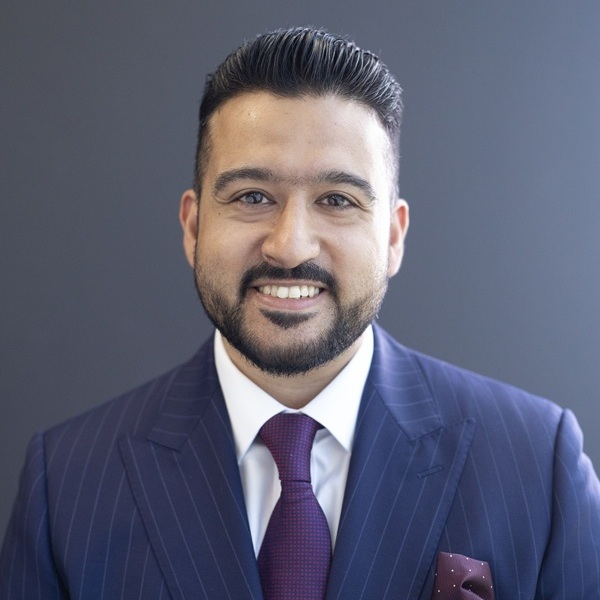Charging or paying interest is prohibited in Islam, which can make conventional home loans off-limits for observant Muslims. But that doesn't mean Australian Muslims need to save the entire value of their dream property in cash.
Numerous Sharia-compliant financing solutions are structured to avoid conventional interest. And you don't have to be a practising Muslim to access these products.
Muzzammil Dhedhy, co-founder and executive director of Islamic financial services provider Hejaz Group, told Your Mortgage that while Muslim homeowners make up the majority of customers, uptake among non-Muslim Australians is increasing.
"Many people like the ethical and transparent nature of Islamic finance.
"We've seen non-Muslims choose these products because they align with their personal ethics or values, or simply because they appreciate the predictable structure of payments."
What is an Islamic or Muslim 'mortgage'?
For a practising Muslim, financing a house purchase isn't always as simple as perusing conventional mortgages or calling up a home loan broker. That's not to say it's impossible, or even particularly difficult.
"Islamic finance is built on two core principles: avoiding interest (riba) and avoiding excessive uncertainty or speculation (gharar)," Mr Dhedhy said.
"Instead of charging interest, Islamic home finance uses structures like Murabaha or Ijara.
"The goal is to keep transactions fair, transparent, and tied to real assets. It's less about clever financial engineering and more about ensuring every deal has real value behind it."
Here are three common Sharia-compliant methods of financing a home without a home loan:
How Islamic home finance works
1. Ijara (lease-to-own):
Under an Ijarah financing structure, the financier purchases and owns the property while the customer makes regular payments that function like rent. Unlike traditional rent, however, each payment is divided into two parts: a rental charge (which includes the financier’s profit) and a portion that gradually increases the customer’s ownership share. At the end of the lease term, the financier transfers full ownership of the property to the customer. In many ways, it's similar to a rent-to-buy scheme.
2. Murabaha (cost-plus financing)
Another common form of Sharia-compliant financing is Murabaha – where the financier buys the homeowner's preferred property and agrees to sell it back to them at a marked-up price, repayable over time.
3. Diminishing Musharakah (co-ownership):
Musharakah sees the homebuyer and the financier partner up to purchase the property. The owner's deposit will determine how much of the property they own and the financier will charge them rent on the remainder. The owner will also agree to buy out the financier over time, effectively purchasing shares in the property on a regular basis until they've acquired 100% of the property.
Costs and features: What to expect
-
Pricing language
When researching Islamic 'mortgages', note that the term 'profit rate' or rent will often be used where 'interest' would otherwise be. -
Deposit requirements
While many Islamic home finance products ask that customers have a deposit of at least 20%, some allow a homebuyer to enter the market with a deposit as small as 5%. Customers with smaller deposits may be asked to pay for Lenders Mortgage Insurance (LMI) like they would if securing a traditional mortgage. -
Features
Some providers offer offset and redraw facilities. Be aware, however, that most Sharia-compliant products are offered by non-bank lenders, which aren't able to provide traditional offset accounts. Often, these facilities work similarly to a redraw with the added benefit of a debit card attached directly to the funds.
Are Islamic home finance products regulated in Australia?
Rest assured, if you're considering a Sharia-compliant home financing solution, you'll likely be protected under Australian regulations.
In Australia, Sharia-compliant home finance products must comply with the National Credit Code, enforced by ASIC. If an Islamic bank is licensed in the future, APRA would also play a role.
However, there aren't Australian standards specifically covering Islamic financing principals. For that reason, it's important home buyers understand exactly what they're agreeing to when purchasing a home with the help of a Sharia-compliant financier.
Tax troubles to be aware of with Islamic home financing
One area where Sharia-compliant property finance can run into difficulty is transaction costs.
Stamp duty – a hefty tax often charged when property changes hands – poses a unique challenge, since some Islamic finance structures involve more than one transfer of title.
Certain states, like Victoria, have introduced relief to avoid double duty, but it's still a complexity buyers need to be aware of.
Who offers Islamic home finance in Australia?
In the 20 years leading up to the 2021 Census, the number of Australians identifying as Muslim more than doubled. As Australia's Muslim community has grown, so too has demand for Islamic home finance products.
But despite significant growth in the Sharia-compliant home financing market over the last few years, mainstream adoption is still a ways away, Mr Dhedhy noted.
"There are only a handful of providers who can deliver fully Sharia-compliant products end-to-end," Mr Dhedhy said.
"Most customers still have to jump through a few more hoops, longer approval timelines, higher deposits, and less choice compared to conventional lending.
"That said, the market is maturing and institutions are investing heavily to make Islamic finance feel just as seamless as a traditional home loan."
At the time of writing, these financial institutions are among those offering Sharia-compliant home financing products to the public:
- Hejaz
- Amanah Islamic Finance
- MCCA
- ICFAL
- Ijarah Finance
All the listed institutions act as non-bank lenders. That means they're not licenced to hold customer deposits, unlike traditional banks.
Australia does not currently have a live Islamic bank. Until recently, there were expectations that Islamic Bank Australia would graduate to an unrestricted Authorised Deposit-taking Institution (ADI) licence (ergo, a banking licence). However the outfit voluntarily handed back its restricted ADI in March 2024.
Islamic home financing: Red flags
No matter the mortgage or home financing product you're considering, it's important to be aware and observant of 'red flags' that could signal extra costs or inaccurate advertising.
One risk homebuyers should be aware of is the possibility that a financial product isn't actually in line with Sharia principles, even if it says it is.
"Buyers should check if there's an independent Sharia advisory board approving the product, and if the terms clearly outline ownership transfer and profit calculation without hidden interest clauses," Mr Dhedhy said.
"A big red flag is when a product uses conventional interest rates behind the scenes but rebrands it with Islamic terminology.
"Transparency is everything, if a provider can't clearly explain how they make money, that's a warning sign."
In addition, make sure you're aware of the actual cost of the finance product you're considering. While traditional mortgages must display interest and comparison rates – the latter reflecting the 'true' cost of an assumed home loan over a 25-year period – this isn't necessarily the case with Sharia-compliant products. Take your time to read over any documentation provided to ensure you're getting a good deal.
Sharia-compliant home financing: FAQs
Is there an Islamic bank in Australia?
Not currently. Islamic Bank Australia was expected to become the country's first fully fledged Islamic bank, but it voluntarily handed back its restricted Authorised Deposit-taking Institution (ADI) licence in March 2024. At present, only non-bank lenders offer Islamic home finance products in Australia.
Do I need to identify as Muslim to apply for a Sharia-compliant finance product?
No. Islamic home finance is open to anyone, regardless of faith. While most customers are Muslim Australians, some non-Muslim borrowers also choose Sharia-compliant products because they value the ethical or transparent payment structures.
Can I get an offset account?
Some providers do advertise offset-style features, however, because most Australian Sharia-compliant financiers are non-bank lenders, the accounts may not function exactly like offset accounts with traditional banks. Always check the terms carefully.
How large of a deposit do I need for an Islamic home financing product?
Many Islamic home finance products require a deposit of around 20%. However, some providers offer options for those with deposits as small as 5%.
Image by Ivan Andriavani on Unsplash





Share